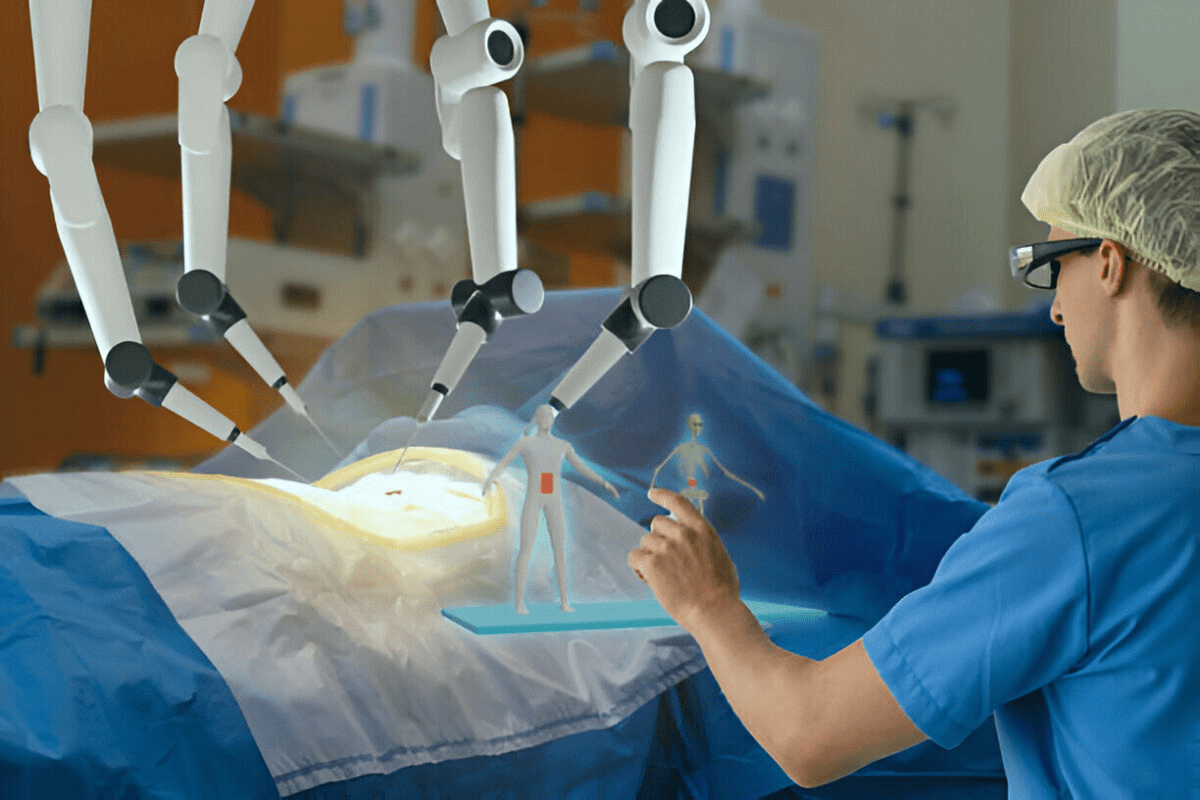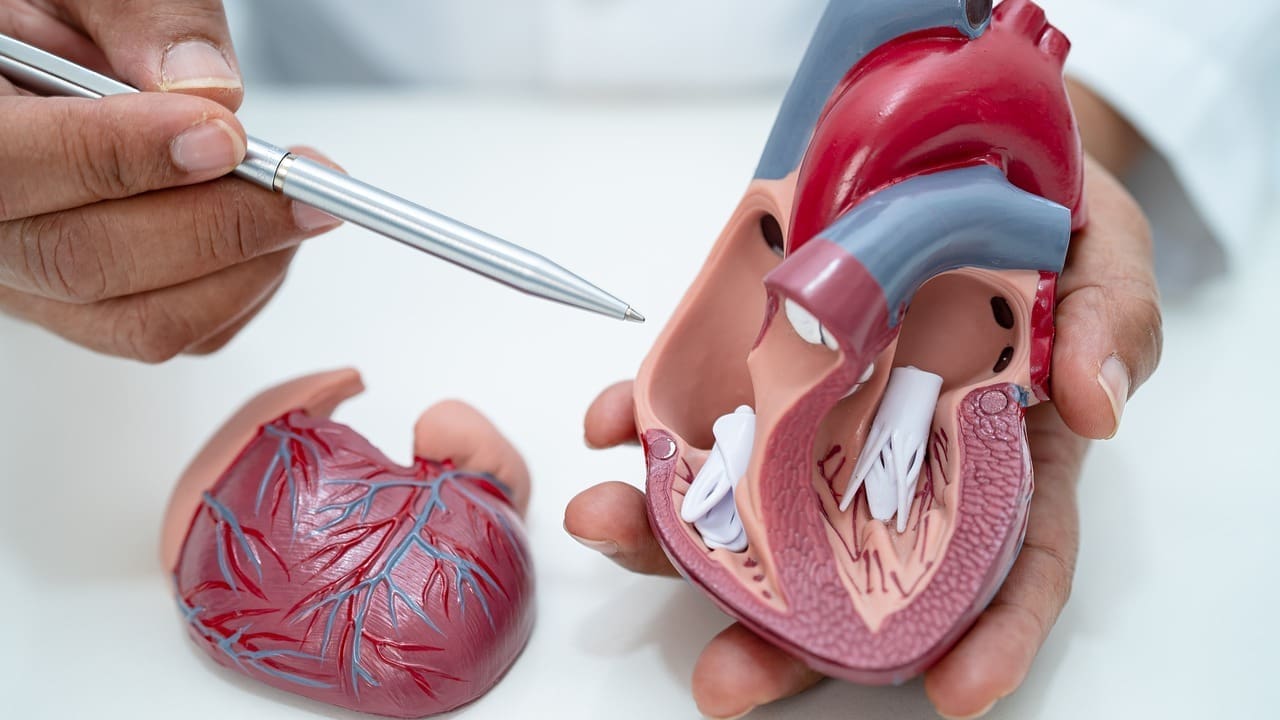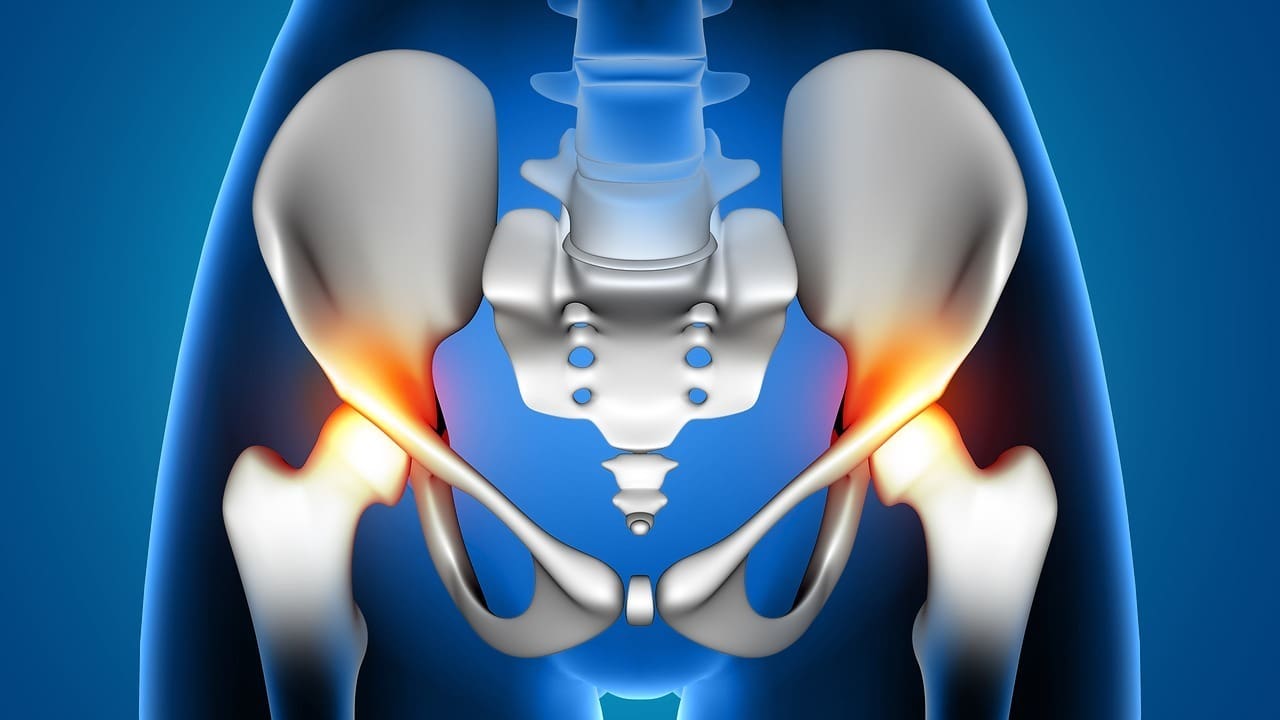Last Updated on November 27, 2025 by Bilal Hasdemir

Exploring cancer care alternatives is important. At Liv Hospital, we focus on separating fact from fiction. We see the growing interest in natural therapies and the need for evidence-based medicine.
Some herbal remedies and diets might look promising. But, studies show that the best cancer outcomes come from proven medical treatments. We’ll look at seven popular natural cancer treatments. We’ll talk about the science behind them and the risks of using unproven remedies.
Key Takeaways
- Understanding the difference between evidence-based cancer care and alternative therapies.
- The risks of skipping conventional cancer treatment for natural remedies.
- Examining the science behind seven popular natural cancer treatments.
- The importance of a patient-centered approach to cancer care.
- Liv Hospital’s commitment to providing world-class healthcare with full support.
The Growing Interest in Natural Cancer Approaches
In recent years, more patients are looking into natural ways to fight cancer. This shift shows a move towards more holistic healthcare. It’s key to grasp why this is happening and how it affects treatment results.
Why Patients Seek Alternative Options
Many patients want to try other treatments because they’re not happy with traditional ones. They might feel traditional treatments are too harsh or have bad side effects. One patient said,
“I wanted to take an active role in my healing process, not just be a passive recipient of treatment.”
This wish for control is a big reason for the rise in natural cancer treatments.
Dealing with cancer can be very tough. Patients want to use natural methods to help their treatments. They hope to feel better and maybe even get better results.
Complementary vs. Alternative Medicine
It’s important to know the difference between complementary and alternative medicine. Complementary therapies add to traditional treatments to make them better. Examples are meditation, yoga, and supplements. Alternative medicine replaces traditional treatments, but it’s not always proven to work.
We stress the need to understand this difference. Using complementary therapies can help patients feel better and have less side effects.
The Importance of Evidence-Based Decisions
When looking into natural cancer treatments, making choices based on evidence is key. Not all natural treatments are proven to work or be safe. We tell patients to talk to their doctors before trying new treatments.
Evidence-based decision-making is very important in cancer care. It means looking at the science, listening to what patients want, and talking to doctors. This way, patients can make sure their treatments are both effective and safe.
In summary, the growing interest in natural cancer treatments shows a move towards more holistic care. By knowing the difference between complementary and alternative therapies and making choices based on evidence, patients can better manage their treatment plans.
Understanding How Natural Cancer Treatment Works
Natural cancer treatments aim to help the body heal itself. They don’t replace traditional treatments but can make them work better. This can lead to better results for patients.
Cancer Development and Progression
Cancer starts with genetic changes and environmental factors. Understanding these is key to finding natural treatments. Some natural substances can slow down cancer by controlling cell growth and death.
Targeting Cancer’s Vulnerabilities
Natural treatments target weak spots in cancer cells. For example, some substances stop tumors from getting blood supply or make cancer cells die. Curcumin, found in turmeric, is one such substance studied for its anti-cancer effects. By hitting these weak spots, natural treatments can slow cancer growth.
The Role of the Immune System
The immune system is vital in fighting cancer. Natural treatments aim to boost the immune system. This helps the body fight cancer cells better. Herbal remedies and supplements can help support the immune system in cancer care. A stronger immune system can lead to better cancer outcomes.
As we learn more about natural cancer treatments, we see how they can fit into cancer care. Combining natural and traditional treatments can offer a more complete care plan. This approach can support patients better.
Diet Modification as Cancer Therapy
The role of diet in cancer therapy is getting more attention. Research shows it can support traditional treatments. Certain diets may lower cancer risk or improve treatment results.
Anti-inflammatory Dietary Patterns
An anti-inflammatory diet can lower cancer risk and improve outcomes. Key components include fruits, vegetables, whole grains, and healthy fats like olive oil. These foods fight oxidative stress and inflammation, helping prevent cancer.
Specific diets, like the Mediterranean diet, are studied for their anti-inflammatory effects. This diet includes whole grains, fruits, vegetables, and healthy fats, which may fight cancer.
Plant-Based Approaches
Plant-based diets are popular for their health benefits, including in cancer prevention and treatment. A plant-based diet focuses on foods like fruits, vegetables, whole grains, and legumes, with less or no animal products.
Research shows plant-based diets may lower cancer risk. They provide nutrients, fiber, and phytochemicals that affect cancer cell growth and survival.
Fasting and Metabolic Approaches
Fasting and metabolic approaches are being studied for better cancer treatment outcomes. Fasting involves limiting calorie intake for periods, making cancer cells more treatable.
Studies suggest fasting can improve treatment tolerance and outcomes. But, it’s important to start fasting and metabolic therapies with a healthcare professional’s guidance for safety and effectiveness.
Herbal Remedies with Anti-Cancer Potentials
Some herbal compounds might help fight cancer. This opens up new ways to study and treat cancer. We’ll look at key herbal remedies and their active parts that could help prevent or treat cancer.
Turmeric and Curcumin
Turmeric, a spice from Indian food, has curcumin, a compound studied for fighting cancer. Curcumin can stop cancer cells from growing and make them die in cancers like breast, lung, and colon.
Curcumin works by changing how cells grow and die. But, it’s hard for the body to use it well. Scientists are working to make it more effective.
Green Tea Extract
Green tea extract is full of catechins, like EGCG. EGCG can slow down cancer cell growth and make them die, which is good for preventing cancer.
Research shows green tea catechins might stop tumors from growing and spreading. But, we need more studies to know how it works in people.
Medicinal Mushrooms
Medicinal mushrooms like Reishi, Shiitake, and Chaga have been used for health benefits, including fighting cancer. These mushrooms contain beta-glucans that boost the immune system and fight tumors.
| Mushroom Type | Potential Anti-Cancer Effects |
|---|---|
| Reishi | Immune system modulation, anti-tumor activity |
| Shiitake | Stimulation of immune response, anti-angiogenic effects |
| Chaga | Antioxidant activity, possible anti-proliferative effects |
Herb-Drug Interactions and Safety Concerns
Herbal remedies might be helpful, but they can also be risky. They can affect how well cancer treatments work or make them more harmful.
It’s important to talk to a doctor before using herbal remedies, if you’re getting cancer treatment. Watching for any bad reactions is key to safe treatment.
Mind-Body Therapies for Cancer Support
Studies show that mind-body therapies are key in helping cancer patients. They improve life quality and cut down stress. These therapies connect the mind, body, and spirit, making cancer care more complete.
Meditation and Stress Reduction
Meditation is a strong tool against stress and anxiety in cancer patients. It helps relax and lowers cortisol, easing the mind’s burden. This is important during and after cancer treatment.
- Reduced Stress: Regular meditation lowers stress and anxiety in cancer patients.
- Improved Sleep: It also helps improve sleep, which is often hard for cancer patients.
- Enhanced Well-being: Meditation boosts well-being and improves life quality.
Yoga and Movement Practices
Yoga mixes physical activity with mindfulness, helping manage cancer symptoms. It has been shown to boost physical function, cut down fatigue, and lift emotional mood in cancer patients.
- Improved flexibility and balance
- Reduced fatigue and better energy levels
- Enhanced emotional well-being through mindfulness and breathing techniques
Psychological Support and Cancer Outcomes
Mind-body therapies offer vital psychological support, affecting cancer outcomes. They reduce stress, improve mood, and boost overall well-being. This can change the disease’s course.
“The integration of mind-body therapies into cancer care represents a significant shift towards more holistic and patient-centered treatment approaches.”
We see the value of adding mind-body therapies to cancer care plans. This way, we offer patients a stronger support system. It tackles both physical and emotional cancer journey aspects.
Nutritional Supplements in Cancer Care
Nutritional supplements are key in cancer care, helping patients stay healthy. They can boost treatment results and life quality. These supplements help fill nutritional gaps and support the body’s defenses.
Vitamin D and Cancer Prevention
Vitamin D might help prevent some cancers. Studies show it could lower cancer risk. Vitamin D helps control cell growth and differentiation, which is why researchers are interested. But, more research is needed to understand its benefits.
Omega-3 Fatty Acids
Omega-3 fatty acids, like EPA and DHA, might fight cancer inflammation. They could reduce inflammation and improve treatment tolerance. Some studies suggest they help with cancer symptoms, but more research is needed.
Antioxidant Supplements: Help or Harm?
Antioxidant supplements, like vitamins C and E, are debated in cancer care. They protect healthy cells but might also protect cancer cells. The effect of antioxidant supplements on cancer treatment is unclear. Patients should talk to their doctors before using them.
In summary, nutritional supplements can be helpful in cancer care if used wisely. Patients should work with their healthcare team to find the right supplements for them.
Exercise as a Natural Cancer Treatment Adjunct
Recent studies show that exercise can help cancer patients better tolerate treatment and lower the risk of cancer coming back. Exercise is a key part of cancer care, helping patients through their treatment journey.
Impact on Treatment Tolerance
Exercise boosts treatment tolerance by improving physical function and reducing side effects. Regular physical activity helps fight fatigue, a common symptom in cancer patients. This lets them stick to their treatment plans better.
A study in a well-known journal showed that exercising during treatment improves physical function and lessens symptoms. This supports adding exercise to cancer care plans to boost treatment tolerance.
Effects on Recurrence Risk
Exercise’s link to cancer recurrence risk is getting more attention. Studies suggest that regular exercise can lower the risk of cancer coming back. For example, a meta-analysis found that exercise interventions significantly cut recurrence risk in different cancers.
We suggest that cancer survivors do regular aerobic and resistance training. A study on Frontiers in Immunology shows these exercises boost immune function and may lower recurrence risk.
Recommended Exercise Protocols
For cancer patients, the type, intensity, and duration of exercise matter. A mix of aerobic exercise, resistance training, and flexibility exercises is recommended.
| Exercise Type | Recommended Frequency | Intensity |
|---|---|---|
| Aerobic Exercise | At least 150 minutes/week | Moderate |
| Resistance Training | 2-3 times/week | Moderate to High |
| Flexibility Exercises | 2-3 times/week | Low to Moderate |
Cancer patients should talk to their healthcare providers before starting any exercise program. This ensures the exercise plan fits their needs and health status, maximizing benefits and minimizing risks.
Debunking Popular Cancer Cure Myths
Many patients search for cancer treatments in a complex world of proven and unproven remedies. It’s key to know the difference between fact and fiction. We must also understand the risks of unproven treatments.
Dr. Sebi’s Cancer Claims Examined
Dr. Sebi, a herbalist, claimed to cure cancer with his herbal remedies. But, his methods lack scientific proof and are rejected by doctors.
Our research shows Dr. Sebi’s treatments lack scientific backing. Using unproven remedies can delay getting the right treatment, which can harm patients.
The “Cancer Cure Miracle” Phenomenon
The dream of a “miracle cure” for cancer has led to many unproven and risky treatments. These treatments often promise too much, taking advantage of desperate cancer patients and their families.
We should be wary of treatments that seem too good to be true. Always research any alternative therapy before trying it.
Hedge Ball Cancer Treatment Myths
Hedge ball treatments are claimed to cure many diseases, including cancer. But, there’s no scientific proof they work.
Our research shows hedge ball treatments are not safe or effective for cancer patients.
Why Unproven Remedies Gain Traction
Despite no evidence, unproven remedies are popular among cancer patients. We look at why, like the desire for control and fear of traditional treatments.
| Unproven Remedy | Lack of Evidence | Potential Risks |
|---|---|---|
| Dr. Sebi’s Herbal Remedies | No credible scientific research | Delayed diagnosis and treatment |
| Hedge Ball Treatments | No scientific evidence | Financial exploitation, possible harm |
| “Cancer Cure Miracle” Treatments | Unrealistic promises, no evidence | Financial loss, delayed effective treatment |
By debunking these myths, we stress the need for evidence-based cancer treatments. Always talk to your doctor before trying any new therapies.
Dangers of Relying Solely on Natural Cancer Cures
Exploring natural cancer cures is important, but we must know the dangers. These methods may offer hope, but they can be risky for cancer patients. It’s key to understand the risks of not using proven treatments.
Delayed Medical Treatment Risks
One big risk is delaying or skipping proven treatments for natural cures. Research shows this can lead to worse outcomes, including higher death rates. For example, a study in the Journal of Clinical Oncology found breast cancer patients using alternative treatments had poorer results.
This risk isn’t just for one type of cancer. A review of studies found patients using alternative treatments had worse disease progression and survival rates than those getting standard care.
Key risks of delayed medical treatment include:
- Disease progression to more advanced stages
- Reduced effectiveness of subsequent conventional treatments
- Increased risk of cancer recurrence
- Higher mortality rates
Unregulated Products and Safety Issues
Another danger is using untested products. Many supplements and herbal remedies are not as safe as drugs. This lack of testing can cause problems like contamination and harmful interactions.
For example, Laetrile, once thought to be a cancer cure, was found to be toxic. It caused cyanide poisoning in some patients.
“The use of unproven and unregulated cancer treatments can expose patients to significant risks, including harm from the treatments themselves and the possibility of delayed or missed effective care.”
Financial Exploitation in Alternative Cancer Care
Financial exploitation is a big issue in alternative cancer care. Many unproven treatments are very expensive. This can be a huge burden for patients and their families, as these treatments are often not covered by insurance.
To protect patients, we need to raise awareness about these dangers. Understanding these risks helps patients make better choices. They can choose to include proven treatments in their care plans.
Integrating Natural Approaches with Conventional Treatment
Using both traditional and natural therapies for cancer is a holistic way to care for patients. This method helps manage the disease and boosts overall well-being.
Reducing Treatment Side Effects
Integrative care is great for reducing side effects from cancer treatments. Treatments like chemotherapy and radiation can be tough on patients. Natural methods like diet changes, herbal remedies, and mind-body therapies can lessen these effects.
For example, some herbs can help with nausea and tiredness from chemo. Looking into alternative methods gives patients more ways to handle their treatment.
| Natural Approach | Benefit |
|---|---|
| Dietary Modifications | Reduces treatment side effects, improves overall health |
| Herbal Remedies | Mitigates nausea, fatigue, and other chemotherapy side effects |
| Mind-Body Therapies | Reduces stress, improves mental well-being |
Improving Quality of Life
Integrative care aims to enhance the life quality of cancer patients. It uses natural therapies to improve physical and emotional health. This approach supports patients through their treatment.
Mind-body therapies like meditation and yoga can lower stress and anxiety. They help patients feel calm and well. These practices can be part of a patient’s daily life, providing ongoing support.
Communication with Healthcare Providers
Talking openly with healthcare providers is key when mixing natural and traditional treatments. Patients should tell their team about any natural therapies they’re using or plan to use.
This open talk helps avoid problems with natural therapies and treatments. It also lets healthcare providers suggest safe and effective integrative care options.
Creating an Integrative Care Plan
Creating a care plan that combines treatments needs teamwork between patients and healthcare providers. The plan should look at the patient’s health, treatment goals, and natural therapies they want to use.
Together, patients and healthcare providers can make a plan that boosts treatment results and improves life quality. This approach is a big step forward in cancer care.
Conclusion: Making Informed Decisions About Cancer Care
Natural cancer treatments are important in cancer care. We’ve looked at different ways, like changing diets and using herbal remedies. We’ve also talked about mind-body therapies and exercise.
Understanding these options is key to making good choices about cancer care. By using natural treatments along with traditional ones, patients might see better results. This can also make their life better while they’re being treated.
It’s vital to talk to doctors to make a care plan that fits you. This way, patients can make choices that help them get the best care. It’s all about working together for the best treatment.
We want to help patients understand cancer care better. This way, they can be more involved in their treatment. We aim to give them the tools to make choices that help their health and well-being.
FAQ
What are natural cancer treatments, and how do they work?
Natural cancer treatments are non-traditional ways to fight cancer. They include changing your diet, using herbs, practicing mind-body therapies, and exercising. These methods might target cancer cells, boost your immune system, or lessen side effects from treatment.
Are natural cancer treatments a replacement for conventional cancer therapy?
No, natural treatments should not replace traditional cancer therapy. It’s best to use both together for the best results.
What is the role of diet in cancer care, and what dietary approaches are beneficial?
Diet is key in cancer care. Eating anti-inflammatory, plant-based foods can help. These diets may lower cancer risk, make treatments more tolerable, and improve life quality.
Can herbal remedies cure cancer, and are they safe to use?
Some herbal remedies might fight cancer, but their safety and effectiveness vary. Use caution with them, as they can interact with other treatments or cause harm. Always talk to a doctor before trying any herbal remedy.
What are the benefits of mind-body therapies in cancer care?
Mind-body therapies like meditation and yoga can reduce stress and improve mental health. They also enhance life quality for cancer patients.
Are nutritional supplements beneficial for cancer patients, and which ones are recommended?
Some supplements, like vitamin D and omega-3 fatty acids, might help cancer patients. But the evidence is not solid. Always check with a doctor before taking any supplement.
Can exercise help cancer patients, and what types of exercise are recommended?
Exercise is good for cancer patients. It can make treatments more effective, lower recurrence risk, and improve life quality. Mix aerobic, strength, and flexibility exercises to fit your needs and abilities.
What are the risks of relying solely on natural cancer cures?
Relying only on natural cures can delay medical treatment, lead to unregulated products, and financial scams. Never give up traditional cancer therapy for unproven natural remedies.
How can I create an integrative care plan that combines natural approaches with conventional cancer treatment?
To make an integrative care plan, talk to your doctor about your treatment options. Work together to create a plan that includes both natural and traditional cancer therapy.
What is Dr. Sebi’s approach to cancer treatment, and is it effective?
Dr. Sebi used herbal remedies and dietary changes for cancer treatment. While some methods might be helpful, the evidence is mostly anecdotal. Use caution when considering his approach.
Are there any natural cancer cures that have been proven to be effective?
Some natural methods show promise in cancer treatment. But there’s no single “natural cancer cure” proven for all patients. Focus on evidence-based natural approaches and use them with traditional therapy.
What is the “cancer cure miracle” phenomenon, and why is it problematic?
The “cancer cure miracle” phenomenon is when unproven or untested remedies are called a “miracle cure” for cancer. It’s problematic because it can cause false hope, financial scams, and delay medical treatment.
How can I avoid falling prey to unproven or untested cancer remedies?
To avoid unproven cancer remedies, be wary of claims that seem too good to be true. Always consult with reputable healthcare providers and look for evidence-based information from trusted sources.
References
- American Cancer Society. 2025 Cancer Facts & Figures. https://www.cancer.org/content/dam/cancer-org/research/cancer-facts-and-statistics/annual-cancer-facts-and-figures/2025/2025-cancer-facts-and-figures-acs.pdf
- National Cancer Institute. Alternative Medicine for Cancer Treatment Raises Mortality Risk. https://www.cancer.gov/news-events/cancer-currents-blog/2017/alternative-medicine-cancer-survival
- Memorial Sloan Kettering Cancer Center (MSKCC). Alternative Cancer Treatments: Science vs. Hype. https://www.mskcc.org/podcasts/cancer-straight-talk/alternative-cancer-treatments-science-vs-hype
- World Economic Forum. Cancer Treatment and Diagnosis Breakthroughs. https://www.weforum.org/stories/2025/02/cancer-treatment-and-diagnosis-breakthroughs/
- Memorial Sloan Kettering Cancer Center (MSKCC). The Truth Behind Three Natural Cures. https://www.mskcc.org/news/truth-behind-three-natural-cures








